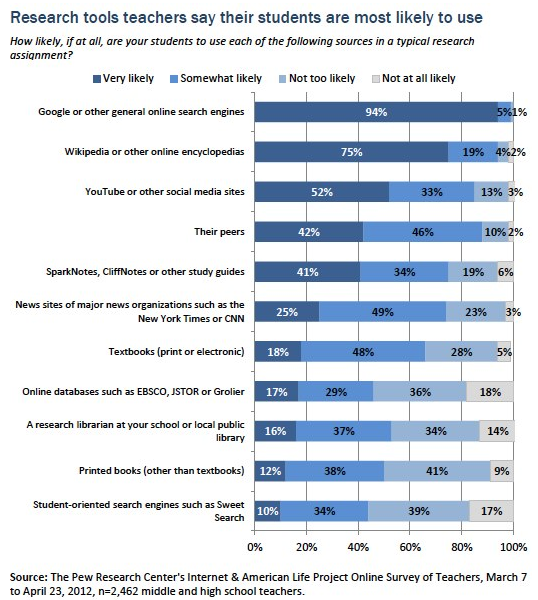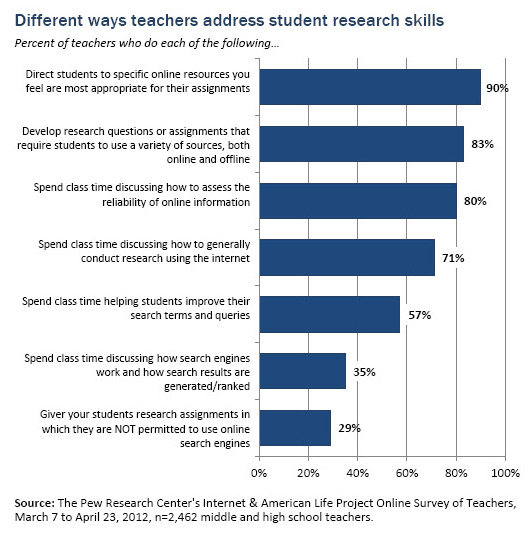Google is the primary way teenagers conduct research in today’s digital world, according to new Pew research. Teachers say teens are most likely to first turn to Google or another search engine as their main research tool 94 percent of the time.

Google is more popular than Wikipedia or other online encyclopedia sites, YouTube or other social media sites, major news sites like The New York Times and CNN, and “traditional” sources of information (e.g., textbooks, print books, online databases, and research librarians), according to The Pew Research Center’s Internet & American Life Project’s new study on “How Teens Do Research in the Digital World”.
Pew gathered the research via three teacher focus groups, two student focus groups, and an online survey completed partially by 2,462 teachers. According to the study:
Ultimately, some teachers say, for students today, “research = Googling.” Specifically asked how their students would define the term “research,” most teachers felt that students would define the process as independently gathering information by “looking it up” or “Googling.” And when asked how middle and high school students today “do research,” the first response in every focus group, teachers and students, was “Google.”
Pew noted that 99 percent of the teachers surveyed either “strongly agree” or “somewhat agree” with the idea that “search engines have conditioned students to expect to be able to find information quickly and easily.” However, the teachers surveyed fear search engines may lead to unreliable sources.

When asked how much of the information teachers find using search engines is accurate or trustworthy, only 5 percent of teacher answered “all or almost all”, while 55 percent said “most” and 40 percent said “some”.
For teachers, the challenge is to convince students to go beyond checking the first result on Google when conducting research and using multiple research tools.

Pew reports that 57 percent of teachers “spend class time helping students improve search terms and queries, yet just [35 percent] devote class time to helping students understand how search engines work and how search results are actually generated and ranked.” Another 29 percent give students assignments that don’t allow students to use search engines.
How do teachers rate the search skill-level of their students? Sixty-two percent were “excellent,” “very good,” or “good” at using appropriate and effective search terms and queries when researching, while 52 percent of students understood how search results are generated. However, Pew noted there’s a lot of work to be done among students when it comes to using multiple sources to support their arguments, assessing the quality and accuracy of online information, taking time to find hard-to-find information, and recognizing bias.


